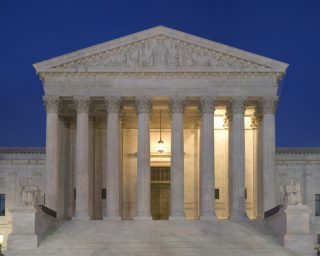When does the statute of limitations clock start running in a False Claims Act (FCA) case when the government declines to intervene in a whistleblower case? That is the question the Supreme Court will consider when it takes up Cochise Consultancy, Inc. v. United States.
The National Whistleblower Center filed an amicus curiae brief in the case this week.
At issue: Must an FCA plaintiff rely on the statute of limitations in a suit in which the United States declines to intervene? If so, does the three-year limitations period begins to run from the date of the whistleblower’s knowledge of the alleged false claim, or from the date of the government official’s knowledge of the alleged false claim?
The brief, written by NWC board chair Stephen M. Kohn, notes that his organization takes the position that the “merits of a claim often bear no relation to the duration of a case.”
He cites a March 2018, $66 million settlement with a Japanese manufacturer charged with using false data to market defective bulletproof vests. In that case, Aaron Westrick shared vital information with the government.” His qui tam case was filed in 2004, and a final settlement was not reached until last year — 14 years later.
“However, the merits of the case and its contributions to public health and safety are unquestionable,” according to the brief.
Kohn argues the statute of limitations in the FCA is clearly set forth in the law. It would be inappropriate for the Court to weigh in on the issue given the plain language of the statute and the clear expressions of Congressional intent regarding a broad interpretation of the law.”
In addition, Congress has shown strong support for the law, he writes.
“It is little wonder why Petitioner and their supporting amici have foregone attempts to convince Congress to roll-back provisions of the FCA and are instead urging this Court to enter a policy debate that they have already lost in Congress and the court of public opinion.”
A brief in support of the limits was filed by industry groups, including the Pharmaceutical Research and Manufacturers of America and the National Association of Manufacturers, with the Chamber of Commerce. They argue that lack of a “robust statutes of limitations” would “encourage stale claims up to a decade old which the government has decided are not worthwhile to pursue and which frequently turn out to be meritless.”
The NWC reviewed the same public documents and challenged data supplied by the group, including conclusions about the duration of cases.
Finally, he argues that the first-to-file provisions work to keep cases from dragging on. If there is a delay in filing a claim, the case may be dismissed, but not under a statute of limitations analysis.
“Another whistleblower may have already filed a similar claim, and consequently the tardy whistleblower’s claim would be dismissed, even if it was filed within the limitations period. The FCA was built with a major incentive encouraging relators to file claims well before the statute of limitations expires.”
Related Links:
The National Whistleblower Center Amicus Brief For The Supreme Court To Uphold Statutes of Limitations for the False Claims Act.
